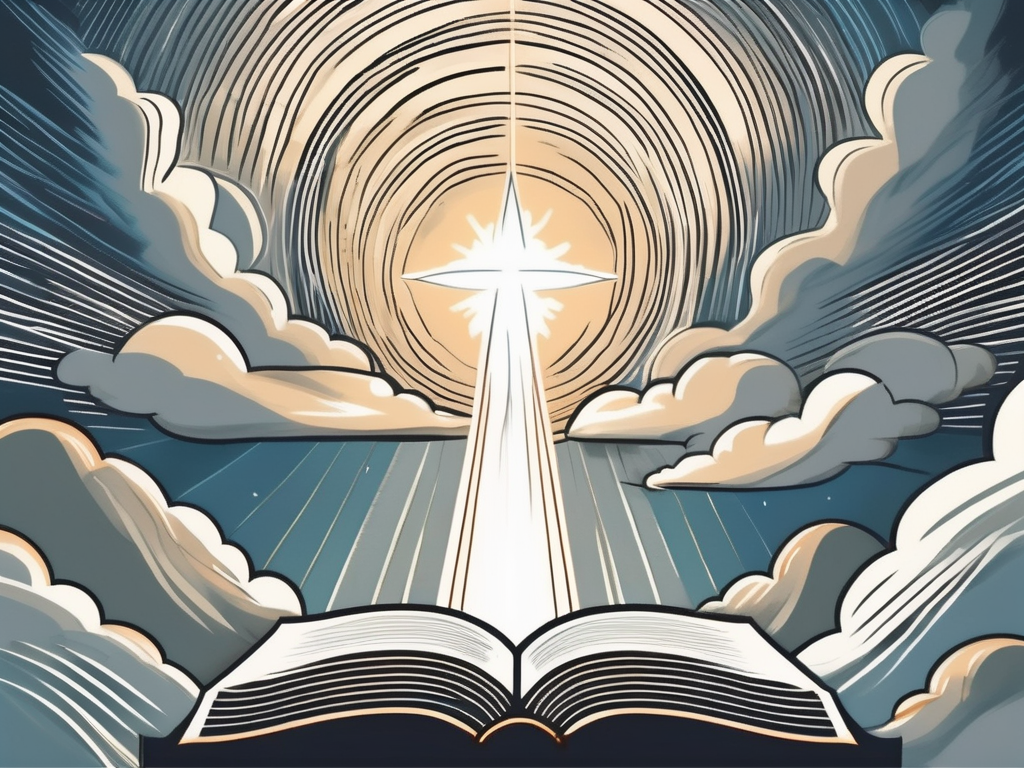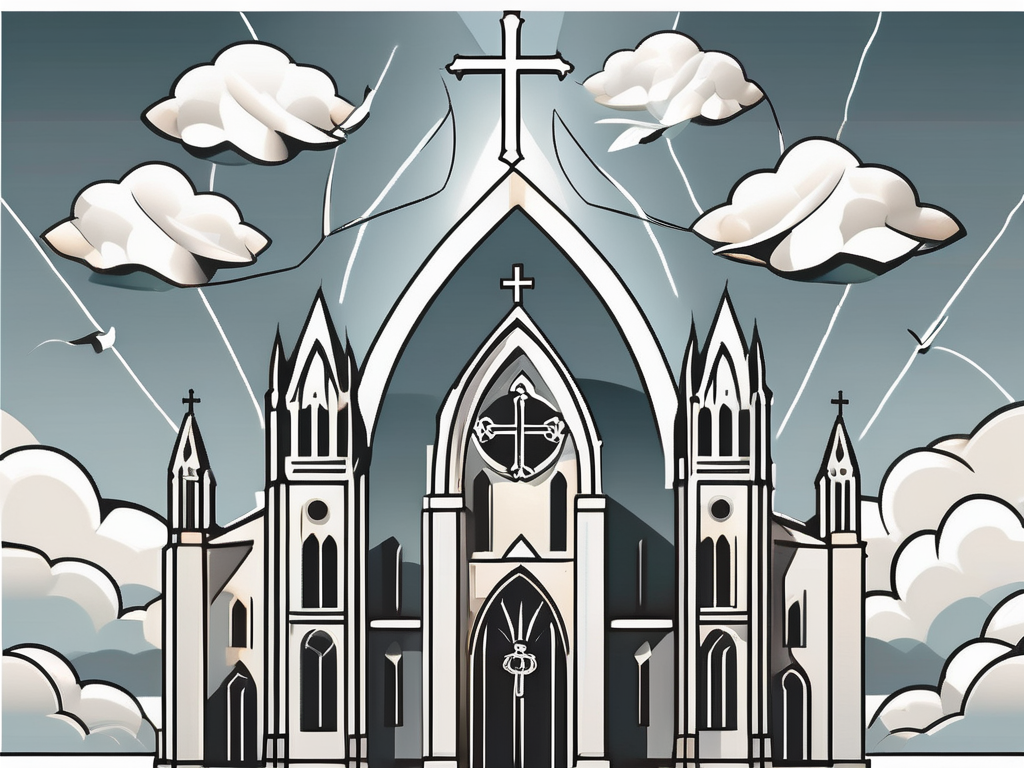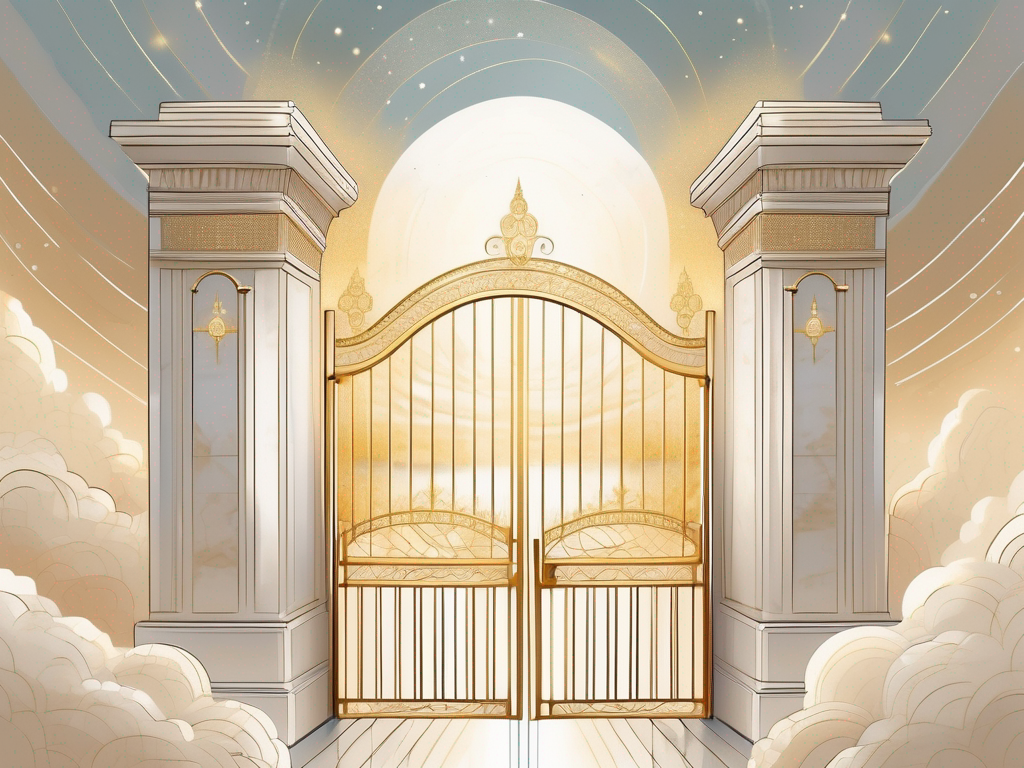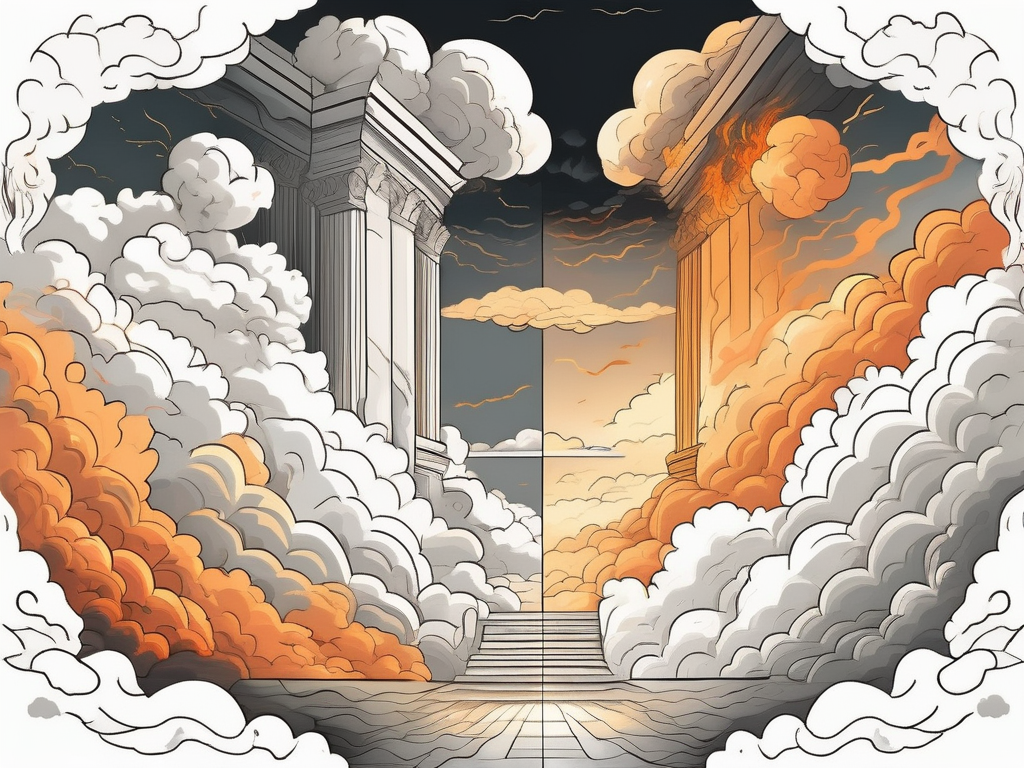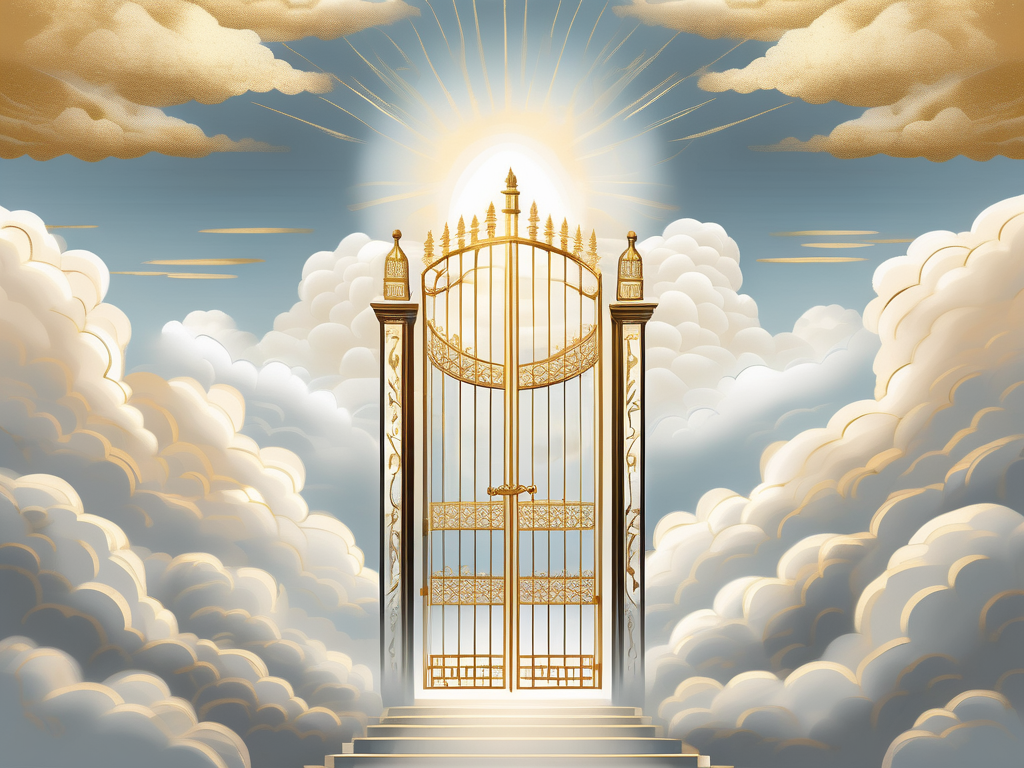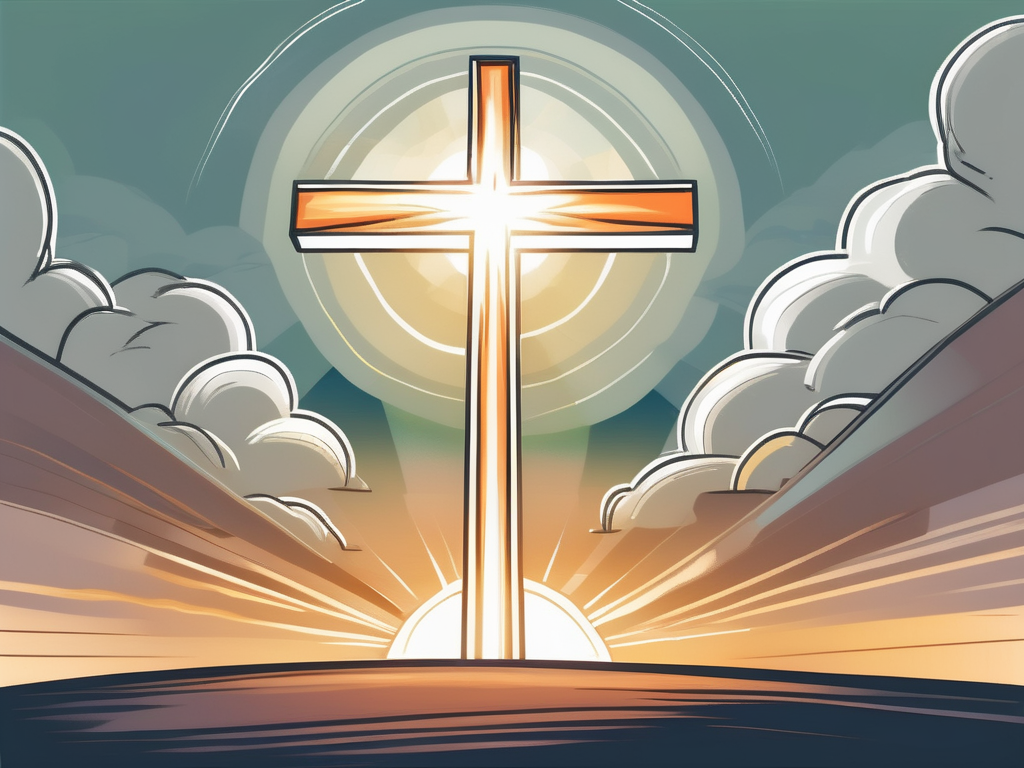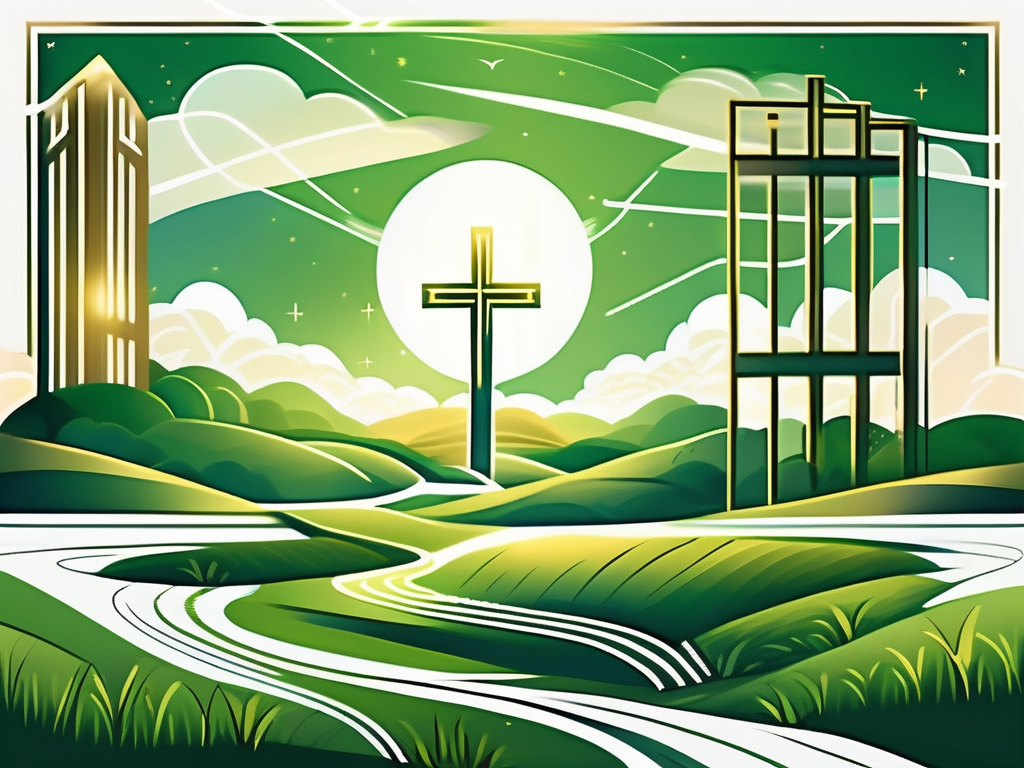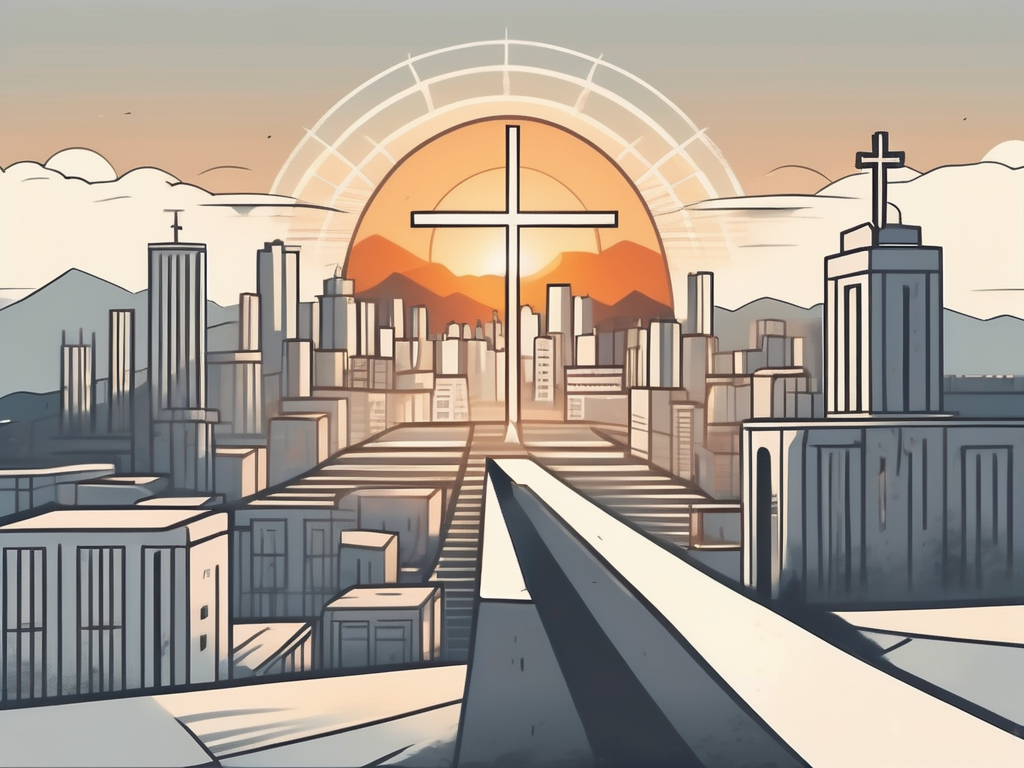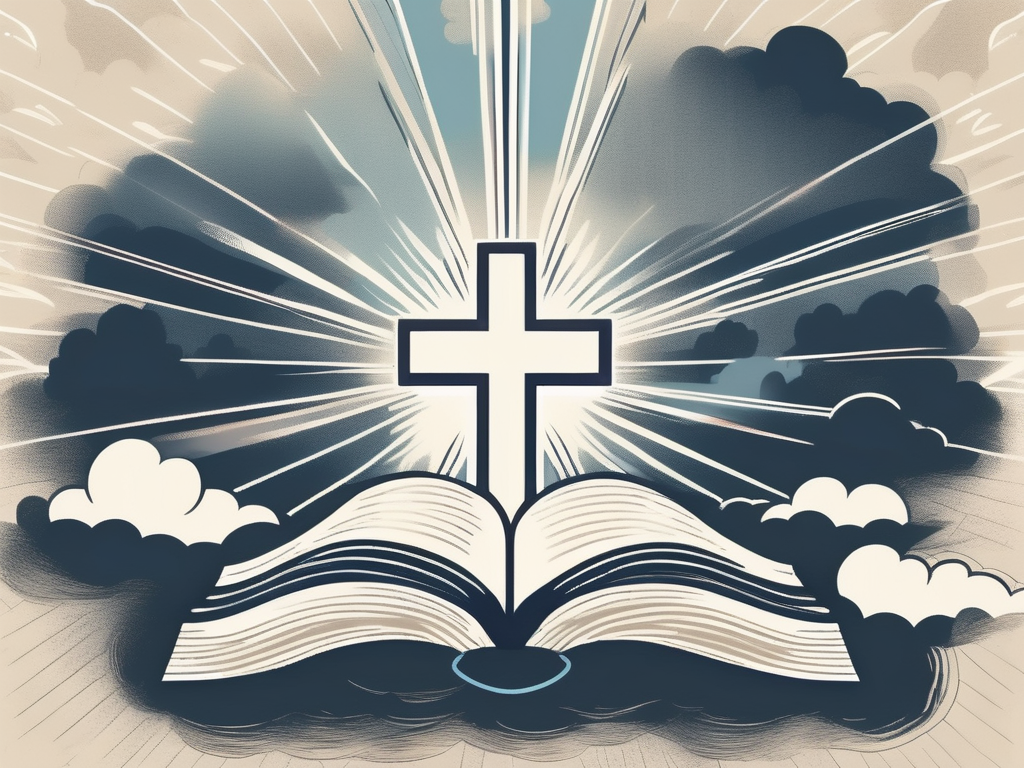In recent years, the concept of the rapture has become a topic of intense discussion and speculation among Christians. This theological belief holds that believers will be taken up to Heaven to meet Jesus Christ before the great tribulation. But what does the Bible really say about the rapture? Let’s take a closer look.
Understanding the Concept of Rapture
Before diving into Biblical references, it’s important to understand what the term “rapture” actually means. The word itself is not found in the Bible, but it originates from the Latin word “rapio,” which means “to be caught up” or “to seize.” In the context of Christian eschatology, it refers to the idea of believers being snatched away to meet Jesus in the air.
While the concept of rapture may seem straightforward, there are various interpretations and disagreements on its origin and meaning.
The Origin and Meaning of Rapture
Some scholars argue that the idea of rapture can be traced back to Paul’s teachings in the New Testament. They point to passages like 1 Thessalonians 4:17 where it says, “After that, we who are still alive and are left will be caught up together with them in the clouds to meet the Lord in the air.” This verse indicates a sudden gathering of believers to meet Jesus.
However, others believe that the concept of rapture emerged later in Christian history, especially during the 19th century with the rise of dispensationalist theology. According to this view, the rapture is seen as a separate event from the Second Coming of Christ and the end times.
Expanding on the idea of dispensationalist theology, it gained popularity through the works of theologians like John Nelson Darby and Cyrus Scofield. They emphasized a literal interpretation of the Bible, dividing history into different dispensations or periods of time in which God interacts with humanity in distinct ways. The concept of the rapture fit into this framework, as it allowed for a clear separation between the Church and Israel, and the fulfillment of God’s promises to both.
Different Interpretations of Rapture
Within Christianity, there are several interpretations of the rapture. One popular view is the pre-tribulation rapture, which suggests that believers will be taken up to Heaven before a period of great tribulation occurs on Earth. This belief offers comfort to those who desire to be spared from the hardships and trials of the end times.
Another perspective is the mid-tribulation rapture, which proposes that believers will be taken up halfway through the tribulation period. This view posits that Christians will experience some level of suffering before being rescued by Jesus.
Lastly, there’s the post-tribulation rapture view, which holds that believers will go through the entire tribulation and be caught up to meet Jesus after it. Supporters of this interpretation argue that it aligns with the Biblical narrative of endurance and perseverance in the face of adversity.
Expanding on the pre-tribulation rapture view, proponents often point to passages such as 1 Thessalonians 5:9 which says, “For God has not destined us for wrath, but to obtain salvation through our Lord Jesus Christ.” They interpret this verse to mean that believers will be spared from the wrath and judgment that will be poured out during the tribulation period.
On the other hand, those who hold to the post-tribulation rapture view find support in verses like Matthew 24:29-31 where Jesus says, “Immediately after the tribulation of those days… they will see the Son of Man coming on the clouds of heaven with power and great glory. And he will send out his angels with a loud trumpet call, and they will gather his elect from the four winds, from one end of heaven to the other.” They argue that this passage clearly places the gathering of believers after the tribulation.
It’s important to note that while the concept of rapture has sparked theological debates and differing interpretations, it remains a topic of interest and discussion among Christians seeking to understand the future events foretold in the Bible.
Biblical References to the Rapture
While the term “rapture” may not be explicitly mentioned in the Bible, there are passages that allude to the concept. These references can be found in both the Old and New Testaments, offering different perspectives and insights.
The Old Testament contains several significant references to the gathering of God’s people. One of these references is found in Isaiah 26:19, where it says, “But your dead will live, Lord; their bodies will rise—let those who dwell in the dust wake up and shout for joy.” This powerful imagery suggests a resurrection-like event in which believers will experience a transformation. It speaks to the hope of life after death and the ultimate victory over the grave.
Additionally, the book of Daniel contains prophecies that some interpret as referring to the end times and the resurrection of the righteous. Daniel 12:1-2 states, “At that time your people—everyone whose name is found written in the book—will be delivered. Multitudes who sleep in the dust of the earth will awake: some to everlasting life, others to shame and everlasting contempt.” These verses imply a future gathering and judgment of people, where the righteous will be raised to eternal life and the wicked will face everlasting contempt.
In the New Testament, the most notable reference to the rapture is found in 1 Thessalonians 4:16-17, where the apostle Paul writes, “For the Lord himself will come down from heaven, with a loud command, with the voice of the archangel and with the trumpet call of God, and the dead in Christ will rise first. After that, we who are still alive and are left will be caught up together with them in the clouds to meet the Lord in the air.” This passage describes the sudden gathering of both the resurrected and living believers to meet Jesus. It paints a vivid picture of a glorious event where believers are united with their Savior and transformed into their eternal, glorified bodies.
Furthermore, in 1 Corinthians 15:51-52, Paul states, “Listen, I tell you a mystery: We will not all sleep, but we will all be changed—in a flash, in the twinkling of an eye, at the last trumpet. For the trumpet will sound, the dead will be raised imperishable, and we will be changed.” These verses reinforce the idea of a transformative event that includes both those who have died and those who are still alive. It emphasizes the suddenness and swiftness of this event, highlighting the supernatural nature of the rapture.
As we explore these biblical references to the rapture, it becomes clear that while the term itself may not be explicitly used, the concept of a future gathering and transformation of believers is present throughout Scripture. These passages offer hope and assurance to believers, reminding us of the glorious future that awaits us in the presence of our Lord.
Theological Perspectives on the Rapture
As mentioned earlier, there are differing theological perspectives on the rapture. Let’s explore the three main views in detail.
Pre-Tribulation View
Supporters of the pre-tribulation view believe that the rapture will occur before the period of great tribulation mentioned in Revelation. They argue that God will spare believers from the intense suffering and judgment that will befall the Earth during this time. This perspective offers hope and comfort, emphasizing God’s protection and deliverance.
According to this view, the rapture will be a moment of great joy and relief for believers. It is seen as a divine rescue mission, where God will gather His faithful followers to Himself, removing them from the chaos and destruction of the tribulation period. This belief is rooted in the idea that God’s love and mercy extend to His people, and He will not allow them to experience the full wrath and judgment that will be poured out on the world.
Proponents of the pre-tribulation view often draw from biblical passages such as 1 Thessalonians 4:16-17, which describes the Lord descending from heaven with a shout, and believers being caught up to meet Him in the air. They interpret this as evidence that the rapture will happen before the tribulation period begins.
Mid-Tribulation View
The mid-tribulation view posits that the rapture will take place halfway through the tribulation period. Believers who hold this perspective expect to experience some degree of tribulation before being raptured. They see this as a test of faith and endurance. This view challenges believers to remain steadfast in the face of hardship and persecution.
According to this view, the tribulation period will be a time of refining and purifying for believers. They believe that God will use this period to strengthen their faith and prepare them for His ultimate deliverance. While they may face trials and tribulations, they hold on to the hope that the rapture will come at the midpoint of the tribulation, providing relief and escape from the more severe judgments that follow.
Supporters of the mid-tribulation view often point to passages such as Matthew 24:29-31, where Jesus speaks of the sun being darkened, the moon not giving its light, and the Son of Man coming on the clouds of heaven to gather His elect. They interpret these verses as referring to the rapture occurring at the midpoint of the tribulation.
Post-Tribulation View
Those who support the post-tribulation view contend that the rapture will occur after the period of tribulation described in the Bible. They argue that believers will go through the trials and sufferings of the end times before being gathered to meet Jesus. This perspective emphasizes the importance of perseverance and prepares believers to endure hardships with faith and trust in God.
According to this view, the tribulation period will be a time of testing and purification for believers. They believe that God will use this period to refine His people, strengthening their faith and preparing them for His coming kingdom. The rapture, in this perspective, is seen as the culmination of the believers’ endurance and perseverance through the tribulation.
Supporters of the post-tribulation view often refer to passages such as 1 Corinthians 15:51-52, where Paul speaks of the transformation of believers at the last trumpet. They interpret this as evidence that the rapture will happen after the tribulation period concludes.
Controversies and Debates Surrounding the Rapture
Given the significance and complexity of the rapture, it is unsurprising that controversies and debates have emerged within Christian circles. Let’s explore some of the key points of contention.
The Rapture and End Times Prophecy
One major area of debate centers around the relationship between the rapture and end times prophecy. Some argue that the rapture is a necessary component of end times events, while others view it as a separate event that may or may not occur. These differing perspectives contribute to ongoing discussions and disagreements.
Discrepancies in Rapture Interpretations
Discrepancies among rapture interpretations also fuel debates. Supporters of different views often clash over the timing and nature of the rapture. These disputes can be intense at times, leading to division and misunderstandings within Christian communities.
The Rapture’s Impact on Christian Beliefs and Practices
The concept of the rapture has significant implications for Christian beliefs and practices. Let’s examine two key areas where the rapture plays a role.
The Rapture and Christian Eschatology
Christian eschatology, or the study of end times, is greatly influenced by the belief in the rapture. The various interpretations of the rapture shape how believers perceive and understand the final events in God’s plan for the world. This has a profound impact on their personal faith and worldview.
The Rapture in Modern Christian Life
For many Christians, the belief in the rapture is a source of hope and assurance. It offers the promise of deliverance from the hardships and tribulations of life and instills confidence in God’s faithfulness. This belief influences how believers live their lives, prompting them to focus on spiritual preparedness and maintaining a close relationship with God.
In conclusion, the concept of the rapture has sparked numerous discussions and debates within the Christian community. While the term “rapture” may not be explicitly mentioned in the Bible, there are references to a future gathering of believers found in various passages. Theological perspectives on the rapture differ as well, ranging from pre-tribulation to mid-tribulation and post-tribulation views. Controversies and debates surrounding the rapture continue to shape Christian beliefs and practices, particularly in regards to end times prophecy and the study of eschatology. Regardless of one’s interpretation, the belief in the rapture serves as a source of hope and encouragement for believers as they navigate their journey of faith.
